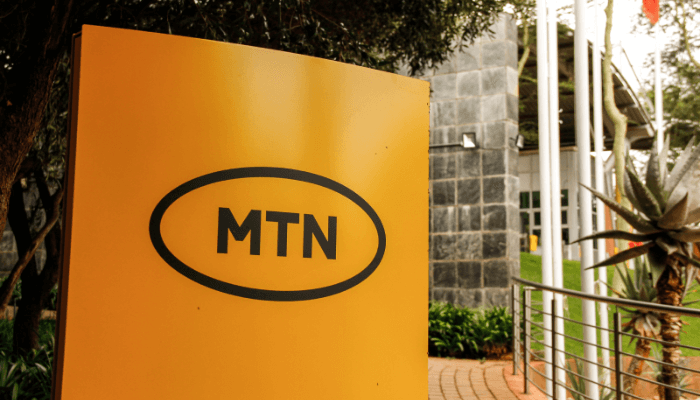2022 began with Volaris Group’s $88 million acquisition of software and IT firm Adapt IT in January. Other acquisitions have followed: Principa’s acquisition by Hyperclear, inq.’ acquisition of Syrex, Gumtree’s acquisition by Impresa Capital, Teraco’s acquisition by Digital Realty, TymeBank’s acquisition of Retail Capital, and more.
According to Disrupt Africa’s 2022 South Africa Startup Ecosystem Report, the country’s startup ecosystem leads the way in exit mergers and acquisitions (M&As). Refinitiv Data says that in the first half of 2021, South African mergers and acquisitions raked in $52 billion (R760.8 billion) from a total of 169 deals, marking a 958% increase in value from the same period in 2020. Of this, deals involving tech companies increased by $160 million, an almost 2,000% increase compared to the same period in 2020.
Since 2015, over one-third of acquisitions in the African tech space have involved South African companies.
“It is primarily the shape and structure of the economy [that makes acquisitions possible]. South Africa [has] more mature companies which are now rechanneling funds into the start-up tech scene. Capital markets and our banking system are also playing a supportive role,” Tshepo Magagane, an investment banker in one of the country’s leading banks, tells TechCabal.
The presence of strong and established local companies, both tech and otherwise, means exits are never far away from budding and viable startups. These startups remain attractive to many young graduates ensuring the startup pipeline continues to expand.
“What you see in South Africa is a more pronounced local ecosystem; the likes of Naspers Foundry and large Technology, Media, and Telecom (TMT) companies are big drivers of activity. Successes from Naspers and other telco giants such as MTN and Vodacom have created a virtuous cycle,” Tshepo adds. “Graduates coming out of University of Cape Town, University of Pretoria, Wits, Stellenbosch are not looking for jobs in big companies; they are focusing on start-ups and small companies.”
A brief history of tech acquisitions in South Africa
In December 1999, a four-year-old South African digital certification company called Thawte and based in Cape Town was acquired by US-based Verisign in a deal worth $575 million at the time (~$1 billion today). The company had been founded in 1995 by Mark Shuttleworth while he was still a student at the University of Cape Town, in his parents’ garage. At the time of its acquisition, Thawte operated in over 100 countries across and had somewhere between 20,000 and 30,000 customers.
Thawte was the first ever full-security encrypted e-commerce web server commercially available outside of the United States. It and VeriSign were the only two digital certificate providers in the world with commercial availability of 128-bit website certificates.
Speaking at the time of its acquisition by VeriSign, Shuttleworth mentioned that the deal was the best move in order to speed up Thawte’s growth and unlock its true market potential. “We considered various options but the merger with VeriSign, which is listed on Nasdaq, emerged as the [most efficient] means to unlock our value,” he said.
With his newfound wealth, Shuttleworth started Here Be Dragons (HBD) Venture Capital in September 2000, the first venture firm in Africa, which sought to invest in local South African businesses with international potential.
A decade later, Keet van Zyl, who worked for HBD as a venture capitalist from 2007 until 2010, launched Knife Capital with Andrea Bohmert and Eben van Heerden. The venture firm took over management of seven HBD portfolio companies including Fundamo, a mobile financial services company that was later acquired by VISA in 2011 for $110 million. Another Knife Capital company, CSense, a Pretoria-based analytics software company, was acquired by US-based technology company General Electric in the same year. Seven years after that, orderTalk, an online ordering software company, was acquired by UberEats.
And so began South Africa’s M&As’ story, a journey with landmark deals such as Softline’s 2003 acquisition by UK-based Sage Group for £66 million (~£104 million today), Nimbula’s 2013 acquisition by Oracle for $110 million, and Tyme’s 2014 acquisition by Commonwealth Bank of Australia for $40-million.
Tech acquisitions in South Africa today
Today, acquisitions in South Africa can broadly be categorized into three:
- Inbound inter-country acquisitions of South African startups by international companies (mostly US-based),
- Domestic intra-country acquisitions of South African startups by well-established South African companies, and
- Domestic intra-country acquisitions of South African startups by other South African startups.
Inbound inter-country acquisitions by international companies include Visa’s $110 million acquisition of mobile financial service provider Fundamo in 2011, Oracle’s $110 million acquisition of cloud computing startup Nimbula in 2013, FirstData’s $54 million acquisition of mobile gift card startup Gyft in 2014, 2U’s $103-million plus $20-million in cash acquisition of Cape Town based education platform GetSmarter in 2017.
Domestic intra-country acquisitions of startups by well-established companies are the most common deals. Some of these deals are TymeBank’s acquisition of Retail Capital, Altron’s acquisition of LawTrust and UbushaTechnologies, PicknPay’s acquisition of delivery startup Bottles App, African Fashion International’s acquisition of Wezart, and The Foschini Group’s acquisition of e-commerce and last-mile delivery service Quench.
The last category of acquisitions, albeit less popular than the other two, is startups acquiring other startups. Considerable investment rounds for domestic startups often furnish them with big enough capital war chests to make these types of acquisitions. Examples include fintech startup Yoco acquiring Web3 software development agency Nona Digital after raising an $83 million Series C round and edtech startup Snapplify acquiring digital publishing startup Onnie Media after raising $2 million.
Reasons for acquisitions
M&As are typically valuable exit avenues for both partners. Acquirees get a very nice payday for founders, employees, and investors, as well as access to a broader pool of markets, resources, and capital. Acquirers benefit from product diversification, talent acquisition, and market expansion.
According to Chris Loker, managing partner of the corporate advisory firm Moksha, the main motivators for tech startup acquisition deals are exits, either for international growth, procuring capital required to scale, or access to a wider client base. But these deals come particularly when the concept is proven.
“…banks have even set up incubators to test new innovations, knowing that a corporate is often where innovation goes to die and their new product lead times can be many years. The travesty is that we don’t often get repeat entrepreneurs as failure is viewed with disdain or exits are rich enough – in the latter case the trend of successful entrepreneurs becoming angel investors will hopefully grow,” Loker explained.
For more established companies—and some startups too—the main reason is product diversification. Acquiring a startup that already has a product and traction, instead of building the said product from scratch, makes more business sense.
A South African investment banker who has overseen numerous acquisitions and wishes to remain anonymous for employment reasons explained:
“I’ll give an example of when a lot of retailers were caught off guard when the [COVID-19] pandemic hit. A lot of their online stores were not well established to actually service their customers when the lockdown happened. This then drove a lot of them to either evaluate whether they could develop or improve their online mediums quickly enough. The quickest route out of this predicament would be to do an acquisition and an example is MassMart acquiring OneCart to assist them with their online service offering.”
A number of acquisitions that have happened in the South African tech space do seem to be majorly driven by product diversification. Weaver Fintech acquired PayJustNow to expand into buy-now-pay-later. TymeBank acquired Retail Capital to expand into offering online banking services for SMEs. inq. acquired Syrex to diversify its product offering into hyper-converged cloud technology. Imperial Logistics acquired ParcelNinja to expand into e-commerce and last-mile distribution and, Vodacom acquired iot.nxt to expand into internet of things (IoT).
Market expansion and talent acquisition are two other significant reasons for acquisitions in South Africa.
A market-expansion-driven acquisition example is Africa Fashion International acquiring online art marketplace Wezart with the intention of using the platform to expand its product offering globally and provide a stronger user base for artists.
Talent acquisition deals are also getting more popular because as the ecosystem is growing, competition for tech talent is also getting tougher in the continent. For startups who have the capital, it often saves time and money to acquire a smaller startup to integrate its talent instead of poaching its talent. This is known as an acqui-hire.
For example, after raising an $83 million Series C round in July 2021, fintech startup Yoco acquired web3 software development agency Nona Digital in March 2022 to accelerate its roadmap by bringing a team of highly-specialized fintech product and technology professionals into the Yoco team.
The role of venture capital in enabling acquisitions
The influx of venture capital into the country’s ecosystem over the last few years is another factor driving acquisition activity as startups are able to build better products, making them attractive to potential suitors.
According to Disrupt Africa, between January 2015 and May 2022, a total of 357 individual South African tech startups raised a combined US$993,684,600, a figure topped only by Nigeria over that time. Funding, both in terms of the volume of startups backed and the total value of the funding deals has generally increased year-on-year in the last three years. 2022 is already on course to be a record year for the country in both metrics.
South African startups also collected more than 21% of all VC funding deals in Africa between 2014 and 2019. This is in contrast to Nigeria’s 14%, even though Nigeria is the continent’s largest economy by nominal GDP and has more than 3 times South Africa’s population.
Apart from the country’s strong macroeconomics, legislations such as the recently phased out Section 12J tax incentive have also contributed significantly to attracting venture capital. Introduced in 2008, the tax incentive was meant to encourage South African taxpayers at the highest marginal tax rate of 45% to invest in venture capital companies that fund small- and medium-sized enterprises with long-term growth potential. The entire amount that is invested could be deducted from the investor’s taxable income after being held for the legally required five-year period.
To take advantage of the incentive, several leading South African VC firms including Knife Capital, Kalon Venture Partners, E4E, as well as Kingson and Anuva Investments have created Section 12J funds specifically targeting startups.
Examples of beneficiaries of Section 12J funds include Snapplify, an edtech company, specializing in digital education content, which went on to acquire Onnie Media, a digital publishing startup in 2020.
Another startup that has benefitted from a Section 12J fund and went on to make an acquisition is Yoco. The fintech startup secured investment from Kalon Venture Partners’ Section 12J dedicated fund and went on to eventually acquire Cape Town-based fintech and Web3 software development agency Nona Digital.
Although the incentive was discontinued in 2021 by the government for apparently failing to achieve its mandates, some key players in the tech ecosystem believe the incentive worked exactly as intended. Clive Butkow, CEO at Kalon Venture Partners explained that Section 12J funds helped overcome the hurdle of international investors being hesitant to invest in South African tech start-ups before they have proven their business model and showed strong growth. By providing local tech start-ups with seed and growth funding to rapidly expand their operations, Section 12J funds gave more startups a chance to become more acquisition-attractive.
Other enabling factors such as a liberal doing-business environment, mature tertiary education, as well an established corporate environment coupled with a multiplicity of entrepreneurs facilitate the proliferation of M&A activity in the country’s tech ecosystem.
Despite much success…
Despite the South African tech ecosystem seeing significant success in M&A exits relative to the rest of the continent, according to Loker, there is still much room for improvement.
“The regulatory environment is good with much protection offered but bureaucratic red tape, legislative inefficiency in the form of lack of adherence and policing. Competition authorities and empowerment requirements are also trending in the wrong direction,” Loker told TechCabal.
Although South Africa climbed 2 places in this year’s World Competitiveness Yearbook (WCY), the country dropped 2 places in the latest, though discontinued, World Bank Ease of Doing Business ranking.
All these dents in South Africa’s ecosystem point to the fact that although the country is a beacon of success in terms of M&A exits on the continent, other African ecosystems should be wary of its shortcomings when they try to emulate its model.
Editor’s Note: An earlier version of this article mentioned Sanari Capital as one of the VC firms with a Section 12J fund. Although its earlier funds were funded with Section 12J capital, Sanari Capital is not a VC firm.





















